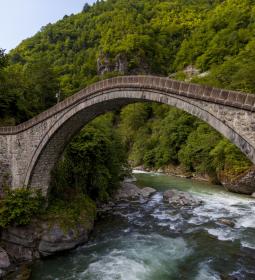Environmental education covers socially significant and demanded specialties and tries to solve urgent environmental problems. Environmental students study climate change, the sustainability of natural resource systems, and the impact of society and industry on the environment.
Bachelor's programs include disciplines such as atmospheric sciences, ecology, environmental chemistry, geophysics, and others.

The duration of the bachelor's programs is from three to five years, the master's programs are from 1-2 years. The duration of candidate programs is from three years. Many universities in Europe offer training in English.

Environmental graduates are in demand in business, manufacturing, consulting, environmental protection organizations. Foreign graduates often stay to work in Europe, taking part in numerous environmental protection projects.
Best Environmental Sciences universities in Europe 2026 - QS World University rankings
| 1 | Wageningen University & Research |
| 2 | University of Oxford |
| 3 | ETH Zurich - Swiss Federal Institute of Technology |
| 4 | University of Cambridge |
| 5 | Imperial College London |
| 6 | Delft University of Technology |
| 7 | Stockholm University |
| 8 | EPFL |
| 9 | Lund University |
| 10 | UCL |
| 11 | The University of Manchester |
| 12 | Technical University of Denmark |
| 13 | The University of Edinburgh |
| 14 | The University of Exeter |
| 15 | Utrecht University |
| 16 | Ghent University |
| 17 | University of Leeds |
| 18 | Universitat de Barcelona |
| 19 | University of Copenhagen |
| 20 | Politecnico di Milano |
| 21 | KIT, Karlsruhe Institute of Technology |
| 22 | KU Leuven |
| 23 | Technical University of Munich |
| 24 | Swedish University of Agricultural Sciences |
| 25 | University of Helsinki |
| 26 | KTH Royal Institute of Technology |
| 27 | Humboldt-Universität zu Berlin |
| 28 | Aarhus University |
| 29 | University of Reading |
| 30 | University of East Anglia (UEA) |
| 31 | Technische Universität Berlin (TU Berlin) |
| 32 | Uppsala University |
| 33 | Newcastle University |
| 34 | The London School of Economics and Political Science (LSE) |
| 35 | University of Bristol |
| 36 | Lancaster University |
| 37 | The University of Sheffield |
| 38 | RWTH Aachen University |
| 39 | Sorbonne University |
| 40 | University of Birmingham |
| 41 | Norwegian University of Science And Technology |
| 42 | University of Natural Resources and Applied Life Sciences Vienna |
| 43 | University of Vienna |
| 44 | Politecnico di Torino |
| 45 | University of Bern |
| 46 | University of Göttingen |
| 47 | Université PSL |
| 48 | University of Southampton |
| 49 | Alma Mater Studiorum - University of Bologna |
| 50 | King's College London |







